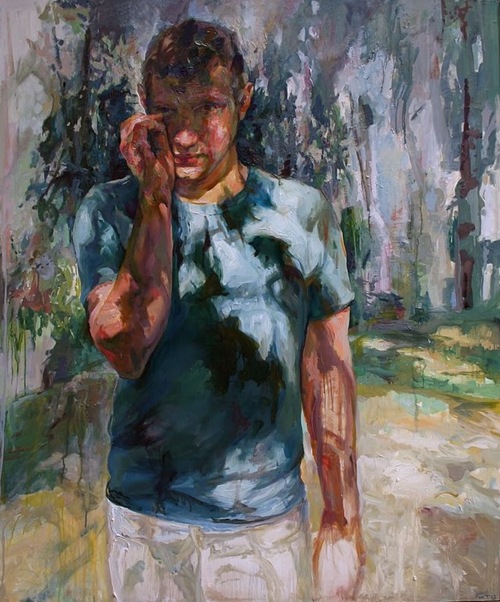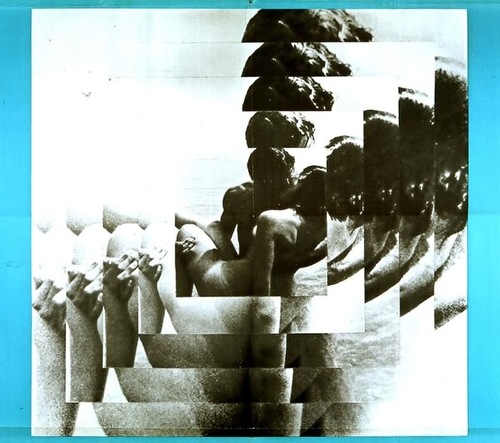
Meursault – One Day This’ll All Be Fields
“I’m torn,” Aspin sighed.
“Torn, huh?” quizzed Manila, halfheartedly, as she thumbed through the National Geographic sitting on an angle to the neatly stacked pile beneath it on the plywood table of the cramped waiting room slipping into the corridor that lead to their general practitioner’s office. It wasn’t the most recent edition. It was the one that required nothing of her. No sifting through the months, years, searching for the photograph that met best the magazine’s signature yellow frame. She never found a means to settle her nerves in waiting rooms. It bothered her that the idea existed, was promoted, became normal in buildings across the world. She had yet to meet somebody who felt comfortable in them. “Where?”
“Between.” Across them sat a miserly man, his wrinkled gaze begat the defeat that drowned his posture. His coat-jacket sat on his knees, pressed tightly to his slacks, the right sleeve reaching for the lint-ridden carpet. Aspin’s fists clenched. Released. The mismatched tones of skin on his fists cuddled tightly against tired veins.
“Yes, between what?” Manila was impatient. It wasn’t commonplace for her, Aspin knew, but he knew also that she had never felt comfortable in waiting rooms.
Even he wasn’t sure what he meant. Manila pinched the page of the magazine: her tension on the edges of the photograph skewed the exterior north wall of the Sera monastery in Tibet, it’s surrounding mountain threatening to crumble from the pages onto the slanted tiling of it’s roof. The monks stood unchanged, their expressions warm, their demeanor betraying nothing of the impending destruction around them.
Aspin reached out and felt for her knuckles, his tenderness prising her clenched thumb and forefinger from the red switch of chaos they pinched against. “I’m not sure, my dear. It’s just a strange feeling,” he soothed.
Not a month had passed since he had been rustling through the refrigerator of their apartment early in the morning, searching for something to sate the niggling pull of his stomach, tugging on his insides like a hook through the upper lip of a restless, impatient carp. His thoughts were disjointed, in strains of coupled words, like “unpaid rent” and “broken lock” and ” dirty carpet” and “sleeping woman”. He eased the utensil drawer back into place. His ears prickled at the sound of Manila’s soft snores. Not abrasive, he thought, but more as if she turned from headstrong woman into fidgeting hummingbird as dusk fought for dawn. He fumbled with the bread slat.
Manila rested the magazine on top of the pile. She nuzzled the cuff of Aspin’s collar, his scent lingering on the fabric. “Are you alright, Aspin?” She tended to use his name when she was concerned. A year earlier they had met at the housewarming party of a mutual friend. Ezequiel had introduced them, smugly joking that with Aspin’s light frame and slender expressions they might be best girlfriends.
Aspin grimaced with the ill-timing of Ezequiel’s humor.
Manila, in her casual jeans and open flannelette shirt escorting an unironed singlet, had an ebullient charm to her movements. It was Aspin’s absent-mindedness that had brought them together, speaking briefly early on he had pressed his palm against the bars of an electric heater and, without realising, burned himself. He cursed and nursed quietly his hand against the cool fabric of his shirt. Manila grinned, vanishing, a blur through the hallways that snipped into the kitchen. Returning with a wet tea-towel, she held it against his irritated skin and, still grinning, carried on with the conversation. “I’m okay, Manila,” he assured.
Lips pressed to his sweater, Manila recalled the night a month ago. She had been asleep when she awoke to a tumble, a sound in the kitchen. Reaching instinctively for Aspin, she found only creased bed-sheets, a duvet deflated by the disappearance of its person. Pulling together her nightdress, she wandered into the hallway, lights flicking on as she passed. “Aspin?” she queried against the empty walls.
It was the silence that frightened her. The silence that comes with the nightfall where creatures and persons alike tire and rest.
She heard rattling, a bundling sound like a group of children dashing across the courtyards of their school. Patters of steps, in tandem and out. Aspin had fallen, was seizing. He had collided with the corner of the bench-top, an unseen wound bearing blood along the length of his skull. A soft, high-pitched sound escaped her, foreign to her throat. It was a dash blurred more so than when they first met, when he had seared the skin of his palms and tried tirelessly for nonchalance. It was there, cradling him, pressing her weight against his convulsions, that the silence stood steady, unwavering.
“Mr. Vasquez,” called the young, unruffled receptionist from her desk cluttered with office filings, portable drawers, and a computer running spreadsheets with listed appointments, administrative notes, and Solitaire minimised along the taskbar. It was always at this point of the afternoon that she could feel the wear in her calls, could feel her fingers lagging with each keystroke. “Dr. Avielo will see you now.”
Manila grasped Aspin’s hand in hers, pressed her thumb tightly against the fickle hairs on back of his fingers. [All Creatures Will Make Merry.]







